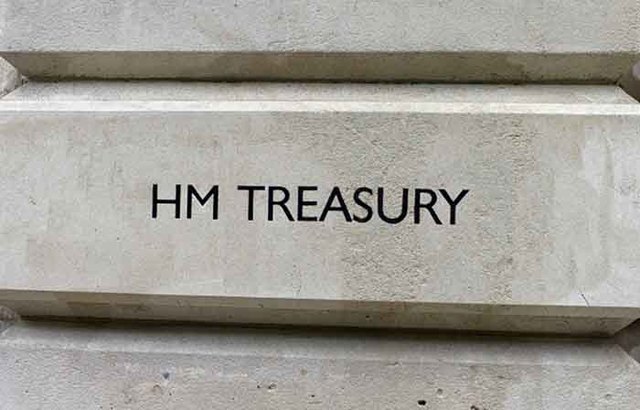The move comes as the industry has been calling on the government to delay its plans due to a lack of interest from key players.
Hargreaves Lansdown, the largest annuity broker in the UK, announced in September that it would not offer a service for investors to sell their annuities, citing too many risks for investors.
It means that existing annuity holders will not be able to sell their policies and benefit from the pensions freedoms introduced by former chancellor George Osborne in April 2015.
Undermine market development
A statement on the HM Treasury website on Tuesday said: “After an extensive programme of engagement with industry, financial regulators and consumer groups, the government has decided not to take forward plans to introduce a secondary annuities market because the consumer protections required could undermine the market’s development.
“Over the past few months, following a wide range of discussions, it has become increasingly clear that creating the conditions to allow a vibrant and competitive market to emerge, with multiple buyers and sellers of annuities, could not be balanced with sufficient consumer protections.
“Many firms have shown they are willing to allow customers to sell their annuities, but the government is clear that there will be insufficient purchasers to create a competitive market.
“While exploring this further, it has become clear that the steps that the government would need to take to create purchasing demand in the market would undermine other consumer protections.
“Consumer protection is a top priority for the government and we are not willing to allow a market to develop which could produce poor outcomes for consumers, such as receiving poor value for their annuity income stream and suffering higher costs.”
The statement added that the government has always been clear, that for the majority of people keeping their annuity incomes will be their best option, estimating that only 5% of people who currently hold an annuity would take advantage of this reform.
Consumer protection
The economic secretary to the Treasury, Simon Kirby, said: “Allowing consumers to sell on their annuity income was always dependent on balancing the creation of an effective market with making sure consumers are properly protected.
“It has become clear that we cannot guarantee consumers will get good value for money in a market that is likely to be small and limited.
“Pursuing this policy in these circumstances would put consumers at risk – this is something that I am not prepared to do,” Kirkby said.
Problem riddled
AJ Bell senior analyst Tom Selby said the plan for a secondary annuity market was always riddled with problems.
“The market would have been stacked in favour of the buyer and posed unacceptable risks to savers, who could have seen the value of their pot ravaged by charges. Pension scammers would also inevitably have seized on the changes to target annuity holders.
“It was difficult to see a long term market where consumers would have got good value,” he said.
“It’s interesting to note that by ditching this policy, Philip Hammond has binned one of George Osborne’s key pensions pledges. The industry will now wait with baited breath for further announcements from the Treasury ahead of the Autumn Statement, most notably on the future of pensions tax relief.”
Move welcomed
Tom McPhail, head of retirement policy at Hargreaves Lansdown said the government’s moves was the right one.
“This will no doubt come as a disappointment to some annuity holders who were looking forward to restructuring their retirement income, however it is the right decision,” he said.
After extensive research, at the beginning of September Hargreaves Lansdown, the UK’s largest annuity broker announced that it would not be participating in the secondary annuity market.
“Our reasons for this decision were very similar to the government’s. The risks to the vast majority of annuity holders outweigh the benefits for the small minority who could benefit,” he said.
Dangerous plan
Old Mutual Wealth pensions expert, Jon Greer said he believed the secondary annuity market was very likely to have been fraught with danger.
“It was a political promise made before the practical application of the policy had been considered, but shelving the proposals so soon is a major u-turn that the government will not have undertaken lightly. The new Chancellor has made the bold choice of prioritising consumer protection over a political promise from George Osborne,” he said.
“We always believed second-hand annuity sales were likely to have limited appeal and would be attractive primarily to those in receipt of a small regular payment that would instead prefer a lump-sum.
“Trading in an annuity product would have left people exposed to our natural bias to favour payment in the short term, rather than a steady income received over time. This tendency to value reward today over reward tomorrow made the proposals really risky.
“And there were numerous unanswered questions about precisely how the market might operate. Would consumers be able to take advice? What protections would they have against rogue dealers? And there was a lack of evidence that there would be sufficient competition from buyers to ensure a healthy market.”








